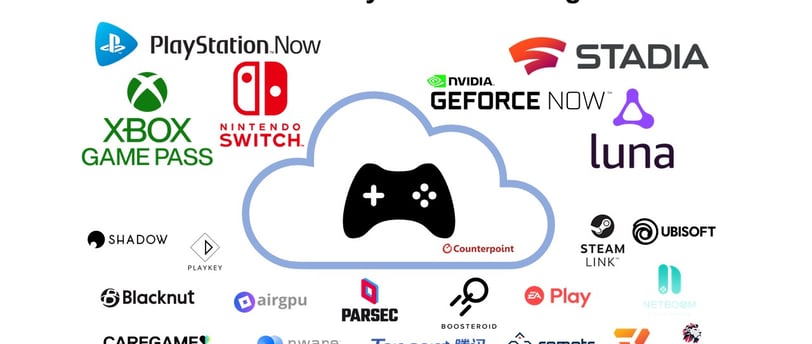The Rise of Cloud Gaming: Revolution in the Gaming Industry
ARTICLES
Verifi
6/17/20243 min read


The gaming industry has changed dramatically over the years, from the days of arcade machines to the present, when high-definition consoles and virtual reality experiences are the norm. The emergence of cloud gaming is among the most revolutionary innovations of the past few years. With the use of this technology, gaming will be revolutionized and more accessible than ever before for top-notch experiences.
What is Cloud Gaming?
Playing games on distant servers and streaming them straight to their devices is a feature of cloud gaming, sometimes referred to as game streaming. This implies that the real processing of the game takes place at data centers, while the player's device—be it a PC, console, smartphone, or smart TV—views the video output through streaming. Without requiring robust local hardware, the player's inputs are relayed back to the server to create an interactive game experience.
The Benefits of Cloud Gaming
Accessibility is one of the main benefits of cloud gaming. Purchasing pricey gaming gear is no longer a need for gamers to play the newest games. All you need is a suitable device and a reliable internet connection. As a result, more people can join the gaming community and the entrance barrier for gaming is lowered.
Cloud gaming also provides flexibility and ease of use. Gamers can begin playing a game on one device and carry over their progress onto another without losing anything. Whether playing at home or on the move, this cross-platform compatibility guarantees a smooth gaming experience. You could, for instance, begin playing a game on your computer at home and carry on while commuting on your phone.
Leading Cloud Gaming Services
A number of significant businesses have joined the cloud gaming space, each providing exclusive features and game libraries. Among the most well-known services are:
1. Google Stadia: This 2019 launch lets users stream games straight from Google's servers. As long as the user has a strong internet connection, Stadia allows 4K streaming and has an expanding library of titles.
2. NVIDIA GeForce Now: This service allows users to stream games from well-known online retailers like Steam and Epic Games Store by utilizing NVIDIA's potent GPUs. GeForce Now gives PC gamers flexibility by enabling them to access their current game collections.
3. Microsoft xCloud: This feature allows users to stream Xbox games to many devices and is included with the Xbox Game Pass Ultimate subscription. Microsoft is a formidable competitor in the cloud gaming space thanks to its vast game selection and Xbox platform interoperability.
4. PlayStation Now: From vintage PS2 games to current PS4 blockbusters, Sony's cloud gaming service provides access to a huge collection of PlayStation games. PlayStation Now gives its customers options by enabling both streaming and downloads of games for PS4 and PS5.
Challenges and Future Prospects
Cloud gaming has numerous advantages, but it also has drawbacks. One important problem is latency, which is the interval of time between player input and on-screen action. A steady and quick internet connection is necessary to reduce latency and offer a fluid gaming experience. The popularity of cloud gaming may also be hampered by internet service providers' bandwidth and data constraints.
Nevertheless, cloud gaming appears to have a bright future. Improvements in streaming quality and a decrease in latency are anticipated with the introduction of 5G and other advances in internet infrastructure. Cloud gaming may eventually replace other methods for consumers to access and enjoy video games as technology develops.
Conclusion
Cloud gaming offers never-before-seen accessibility, ease, and flexibility, marking a dramatic change in the gaming business. Even though there are obstacles to overcome, the development has great promise for players across the globe. Cloud gaming is set to become a major player in the gaming industry and change how we play and enjoy games as internet technology advances.
